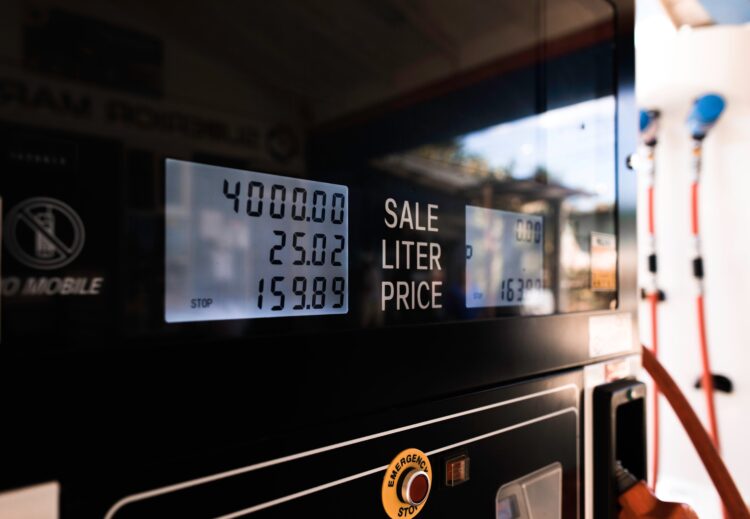
In any business, one of the most important things a leader can do to ensure success, is find ways to keep costs low. No matter what kind of company you run, you’re going to incur costs from making products and delivering services. Finding ways to reduce those operational expenses, is often high on any financial manager’s list. If you’re a fleet manager, responsible for handling the cars and vehicles in your company’s day-to-day operations, then you’re under extra pressure to make sure you’re keeping fees as low as possible. Today, we’re going to look at just some of the ways fleet managers can reduce costs.
Start with Monitoring and Analytics
Fleet management software, like many kinds of management software available for businesses to use today, isn’t just there to help make your team more efficient. The correct software will also give you a useful insight into how your teams are using assets like cars and vehicles. Extensive analytics tools provide behind the scenes overviews of things like fuel costs, maintenance expenses and more.
You can utilize reefer monitoring solutions from Samsara.com for more cost-effective control of your fleet, and access specialist systems to help ensure your teams are operating quickly when handling important products, like refrigerated assets. Fleet management and monitoring tools can even help you to reduce costs by ensuring your teams are safer. The more secure and safe your staff are on the road, the less you have to worry about repair costs, and other, more significant concerns.
Find the Right Service Deal

Ultimately, even if you do have policies in place to ensure your employees are driving as efficiently and safely as possible, your vehicles are going to need service from time to time. Setting up a schedule for things like maintenance and MOT costs will help you to prepare for times when certain assets aren’t going to be available to your team, so you can avoid missing out on income. Planning how you’re going to get your vehicles serviced and where you’re going to take them in advance could also help you to access some great deals.
You might be able to save a fortune on taking your cars to a local garage, if they’re willing to offer you a deal with a regular recurring contract. Remember, to reduce the risk of expensive maintenance costs, ensure your employees know how to keep their cars in as good condition as possible. Your monitoring tools should be able to give you an insight into who’s following policies correctly.
Monitor Mileage and Fuel Costs

Monitoring mileage is a standard part of managing costs when it comes to fleet control. You’ll need to think about exactly how much fuel your drivers should be using on a regular basis, and whether they’re actually using more than necessary. If the amount of fuel your team uses to visit the same places starts to go up over time, this could be a sign your vehicles are becoming inefficient, or that your drivers aren’t using fuel saving practices.
It’s also worth looking into whether you can get special wholesale deals on fueling up if you have a lot of cars to power at the same time. There are various credit cards and membership groups which can offer discounts for business purchases. Monitoring the mileage on your vehicles should give you an insight into the average fuel expenses you should expect to pay each month, but remember to keep an eye on changing prices caused by shifts in demand and the economy.
Choose Vehicles Carefully

Although many of the expenses associated with running a successful fleet can be reduced by choosing the right employees to handle your vehicles, it’s important to have the right cars in place too. Although it might be tempting to buy a second-hand vehicle or truck to reduce initial costs, don’t forget to consider the lifetime value of the car. Remember that some older cars might not be as efficient when it comes to fuel management or may require additional maintenance.
It’s also worth checking for the prices of things like insurance when you’re bulk buying cars for your fleet. Sometimes, you can be surprised by the amount you’ll need to pay for things like taxation and protection. Calculate the full price of the ownership of your fleet of vehicles before you invest in anything, to make sure you’re spending money on the cars most likely to deliver a great return on your cash.
Train Your Employees

Finally, no matter what kind of business you’re running, training your employees regularly is an important part of making them as efficient as productive as possible. By getting your life organized you can teach that same organization to your team. The correct training when you’re managing a fleet of staff members can make a huge difference to how successful your team really is. You might even be able to cut down on the number of staff members you need if you can make your team more efficient.
Training your employees is an important part of keeping them as safe as possible too. Your staff members should feel confident on the roads, as this will help to stop them from taking any dangerous risks which could increase your insurance payments. The safer and more skilled your employees are, the more likely it is they’ll use their fuel as efficiently as possible, and reduce the amount of maintenance required to keep your vehicles in amazing condition.
Make Your Team More Efficient
As a fleet manager, you’re responsible with dealing with one of the most expensive parts of the business. This often means a lot of financial officers and business leaders will turn to you when they’re looking for ways to cut down on costs. Hopefully, with the tips above, you’ll be able to make some initial steps to making your fleet more efficient and affordable. Don’t forget, you can always experiment with different strategies and examine the analytics on your fleet management system and use the information you collect to make better decisions about the future. Data-based decisions will always be more valuable to your team.











